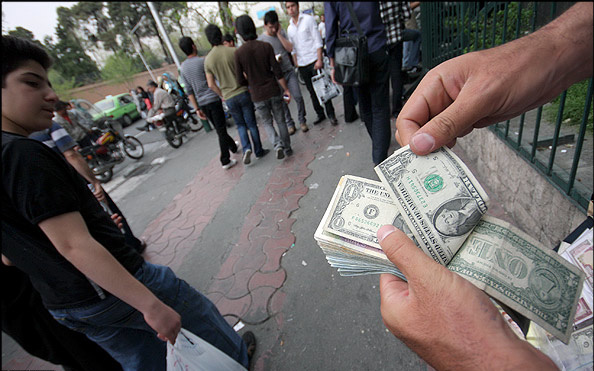Richard Nephew, former State Department official and now Fellow with the Center for Energy Policy at Columbia University, writes for Foreign Policy:
As negotiators close in on a nuclear deal with Iran, there’s been a corresponding uptick in ominous expectations about how Tehran could use the potential rush of funds from sanctions relief to prey on its weak neighbors and secure regional hegemony. U.S. lawmakers like Senator Mark Kirk (R-Illinois) and lobbying outfits like the Foundation for Defense of Democracies argue that once the sanctions are gone, Iran will stop at nothing to support groups like Hezbollah or Hamas, as it has in recent decades.
These fears are wildly overblown. Iran’s domestic economic needs are real, as is Iranian President Hassan Rouhani’s imperative to deliver on the promises that got him elected and proceed with the talks. To ensure the stability of their government, Iran’s leaders must tend to the problems at home and make the investments necessary to sustain their future. Supporting Syrian President Bashar al-Assad and other regional actors is an important, but secondary, objective.
Certainly, Tehran believes it has always been in its interest to support its friends in the region, and that no level of sanctions could stop them from doing so. This is a government that has, after all, funded and armed radical elements since the fall of the Shah of Iran in 1979, through the Iran-Iraq War, and after the intensification of crippling sanctions in 2010. Tehran continued to invest in the Assad regime, despite the immediate loss of over a quarter of its 2012 oil revenues compared to the previous year, and $60 billion in potential revenues from that point forward. Likewise, Iran has assisted Shiite militants in Iraq, the Taliban in Afghanistan, and is now supporting the Houthis in Yemen, despite major economic crisis at home.
So, why should Washington free Iran from sanctions and allow it access to the $100 billion in oil revenues presently locked up in restricted accounts? While the thought of indirectly financing terrorists is, frankly, terrifying, this fear-laced argument assumes that Iran believes the money — which amounts to a little less than one-fifth of its 2013 GDP — would be best spent on proxy wars. But judging from the economic difficulties it faces, especially following the collapse in oil prices over the past year, that assumption seems especially dubious. This argument, irrational though it may be, is a very powerful one, given U.S.-Iran history, the volatile nature of the Middle East, and Iran’s past support of extremist groups (as the State Department reported, again, only two weeks ago). It does not take much to convince Americans that Iran will stop at nothing to support terrorism as vigorously as it can.
But Iran’s leaders know how much money is at stake, and how it can be used. It is implausible that, after the Supreme Leader allowed Rouhani to be elected President in 2013 on a platform pledging economic recovery — in part, through promises of sanctions relief — he would support initiatives that leave the Iranian population in the cold in order to protect foreign groups and leaders like Assad.

